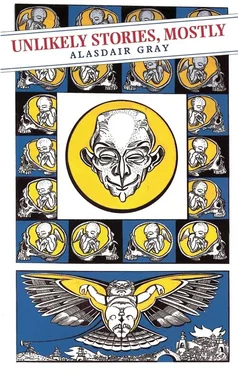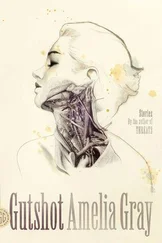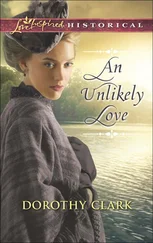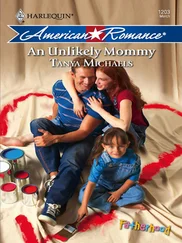“But sir, need we go rapidly to this death? The emperor’s letter suggests not, and that letter has the force of a passport. We can use it to visit any part of the palace we like. Give us permission to escort you to death by a flowery, roundabout path which touches on some commonplace experiences all men wish to enjoy. I ask this selfishly, for our own sakes, but also unselfishly, for yours. We love you sir.”
Tears came to my eyes but I said firmly, “I cannot be seduced. My wish for death is an extension of my wish not to move, feel, think or see. I desire nothing with all my heart. But you are different. For a whole week you have my permission to glut yourself on anything the emperor’s letter permits.”
The doctor said, “But sir, that letter has no force without your company. Allow yourself to be carried with us. We shall not plunge you into riot and disorder. All will be calm and harmonious, you need not walk, or stand, or even think. We know your needs. We can read the subtlest flicker of your eyebrow. Do not even say yes to this proposal of mine. Simply close your eyes in the tolerant smile which is so typical of you.”
I was weary, and did so, and allowed them to wash, feed and prepare me for sleep as in the old days. And they did something new. The doctor wiped the wounds at the top of my thighs with something astringent and Adoda explored them, first with her tongue and then with her teeth. I felt a pain almost too fine to be noticed and looking down I saw her draw from each wound a quivering silver thread. Then the doctor bathed me again and Adoda embraced me and whispered, “May I share your throne?”
I nodded. Everyone else went away and I slept deeply for the first time in four days.
Next morning I dreamed my aunt was beside me, as young and lovely as in days when she looked like the white demon. I woke up clasping Adoda so insistently that we both cried aloud. The doors of the central hall were all wide open; so were the doors to the garden in the rooms beyond. Light flooded in on us from all sides. During breakfast I grew calm again but it was not my habitual calm. I felt adventurous under the waist. This feeling did not yet reach my head, which smiled cynically. But I was no longer exactly the same man.
The rest of the entourage came in wearing bright clothes and garlands. They stowed my punt-shaped throne with food, wine, drugs and instruments. It is a big throne and when they climbed in themselves there was no overcrowding even though Tohu’s nurse was there too. Then a horde of janitors arrived with long poles which they fixed to the sides of the throne, and I and my entourage were lifted into the air and carried out to the garden. The secretary sat in the prow playing a mouth-organ while the chef and doctor accompanied him with zither and drum. The janitors almost danced as they trampled across the maze, and this was so surprising that I laughed aloud, staring freely up at the pigeon-flecked azure sky, the porcelain gables with their coloured flags, the crowded tops of markets, temples and manufactories. Perhaps when I was small I had gazed as greedily for the mere useless fun of it, but for years I had only used my eyes professionally, to collect poetical knowledge, or shielded them, as required by the etiquette. “Oh, Adoda!” I cried, warming my face in her hair, “All this new knowledge is useless and I love it.”
She whispered, “The use of living is the taste it gives. The emperor has made you the only free man in the world. You can taste anything you like.”
We entered a hall full of looms where thousands of women in coarse gowns were weaving rich tapestry. I was fascinated. The air was stifling, but not to me. Adoda and the chef plied their fans and the doctor refreshed me with a fine mist of cool water. I also had the benefit of janitors without kneebands, so our party was socially invisible; I could stare at whom I liked and they could not see me at all. I noticed a girl with pale brown hair toiling on one side. Adoda halted the janitors and whispered, “That lovely girl is your sister who was sold to the merchants. She became a skilled weaver so they resold her here.”
I said, “That is untrue. My sister would be over forty now and that girl, though robust, is not yet sixteen.”
“Would you like her to join us?”
I closed my eyes in the tolerant smile and a janitor negotiated with an overseer. When we moved on, the girl was beside us. She was silent and frightened at first but we gave her garlands, food and wine and she soon became merry.
We came into a narrow street with a gallery along one side on the level of my throne. Tall elegant women in the robes of the court strolled and leaned there. A voice squeaked, “Hullo, Bohu” and looking up I saw the emperor smiling from the arms of the most slender and disdainful. I stared at him. He said, “Bohu hates me but I must suffer that. He is too great a man to be ordered by a poor old emperor. This lady, Bohu, is your aunt, a very wonderful courtesan. Say hullo!”
I laughed and said, “You are a liar, sir.”
He said, “Nonetheless you mean to take her from me. Join the famous poet, my dear, he goes down to the floating world. Goodbye, Bohu. I do not just give people death. That is only half my job.”
The emperor moved to a lady nearby, the slender one stepped among us and we all sailed on down the street.
We reached a wide river and the janitors waded in until the throne rested on the water. They withdrew the poles, laid them on the thwarts and we drifted out from shore. The doctor produced pipes and measured a careful dose into each bowl. We smoked and talked; the men played instruments, the women sang. The little weaver knew many popular songs, some sad, some funny. I suddenly wished Tohu was with us, and wept. They asked why. I told them and we all wept together. Twilight fell and a moon came out. The court lady stood up, lifted a pole and steered us expertly into a grove of willows growing in shallow water. Adoda hung lanterns in the branches. We ate, clasped each other, and slept.
I cannot count the following days. They may have been two, or three, or many. Opium plays tricks with time but I did not smoke enough to stop me loving. I loved in many ways, some tender, some harsh, some utterly absent-minded. More than once I said to Adoda, “Shall we die now? Nothing can be sweeter than this” but she said, “Wait a little longer. You haven’t done all you want yet.”
When at last my mind grew clear about the order of time the weaver and court lady had left us and we drifted down a tunnel to a bright arch at the end. We came into a lagoon on a lane of clear water between beds of rushes and lily-leaves. It led to an island covered with spires of marble and copper shining in the sun. My secretary said, “That is the poets’ pantheon. Would you like to land, sir?”
I nodded.
We disembarked and I strolled barefoot on warm moss between the spires. Each had an open door in the base with steps down to the tomb where the body would lie. Above each door was a white tablet where the poet’s great work would be painted. All the tombs and tablets were vacant, of course, for I am the first poet in the new palace and was meant to be the greatest, for the tallest spire in the centre was sheathed in gold with my name on the door. I entered. The room downstairs had space for us all with cushions for the entourage and a silver throne for me.
“To deserve to lie here I must write a poem,” I thought, and looked into my mind. The poem was there, waiting to come out. I returned upstairs, went outside and told the secretary to fetch paint and brushes from his satchel and go to the tablet. I then dictated my poem in a slow firm voice.
THE EMPEROR’S INJUSTICE
Scattered buttons and silks, a broken kite in the mud ,
Читать дальше












